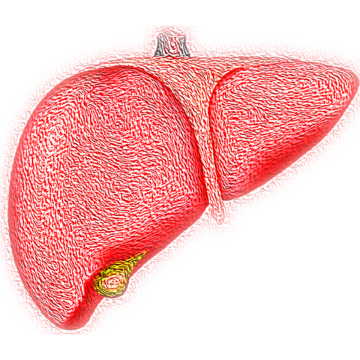
- Liver lesions are tumors in the liver.
- Some liver lesions don’t cause complications, but some may lead to cancer.
- Taking safety precautions against hepatitis B or C may lower your risk of getting cancerous liver lesions.
Liver lesions refer to a group of abnormal cells in the liver. They are sometimes called mass or tumor. Some liver lesions are harmless, but some may develop from cancer.
Who Gets Liver Lesions?

Anyone can develop a liver lesion, but these factors can put you at higher risk of cancerous ones:
- Hepatitis B or C
- Cirrhosis
- Iron storage disease or hemochromatosis
- Obesity
- Arsenic consumption
- Aflatoxin ingestion
Symptoms

Noncancerous liver lesions don’t usually cause any symptoms and are often diagnosed when a person goes for an imaging test for a different health issue.
If symptoms occur, they depend on the type of liver lesions you have. They usually include:
- Abdominal bloating, swelling, or pain
- Feeling full
- Nausea and vomiting
- Weight loss
- Fever
- Fatigue
- A yellow tint on skin or eyes
Diagnosis

If your doctor suspects a liver lesion, they’ll probably recommend one or a combination of these procedures:
- Blood tests for viral hepatitis or overall liver health.
- Imaging tests like magnetic resonance imaging (MRI), CT (computed tomography) Scan, or positron emission tomography (PET) scan, to check the location and size of a lesion.
- Biopsy, where your doctor takes a small sample of the lesion to check for problem cells and rule out cancer.
Treatment

If you don’t experience any symptoms, treatments or medications may be unnecessary. However, if the lesion is causing issues, your doctor may recommend surgery to remove it and ease your symptoms.
For cancerous lesions, your doctor may recommend one or more of these:
- Chemotherapy – a combination of powerful drugs is used to kill drug cells.
- Transarterial chemoembolization (TACE) – a targeted type of chemotherapy that directly connects anti-cancer drugs to the lesion through a catheter and into the artery that supplies blood to the liver.
- Radiofrequency ablation (RFA) – a small probe is inserted into the tumor in your liver through tiny cuts in the abdomen. The probe heats up and kills cancerous cells.
Prevention

Some lifestyle changes like exercising, maintaining a healthy weight, and drinking in moderation. Eighty percent of liver cancer cases also result from hepatitis B or C, so it would be wise to take safety precautions against the disease. Some things you can do are getting vaccinated against hepatitis B, practicing safe sex, and not using recreational drugs that require injections.
Source: Web MD
